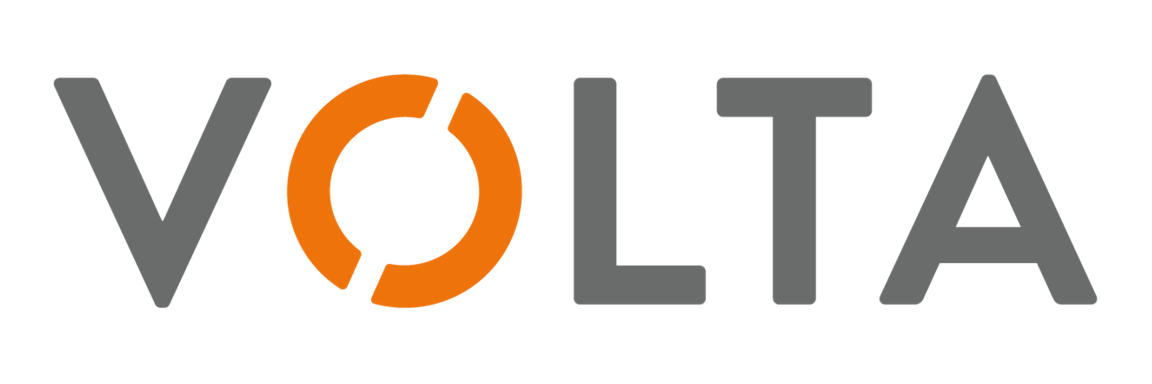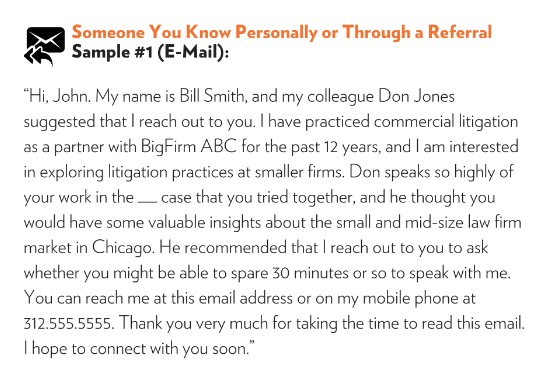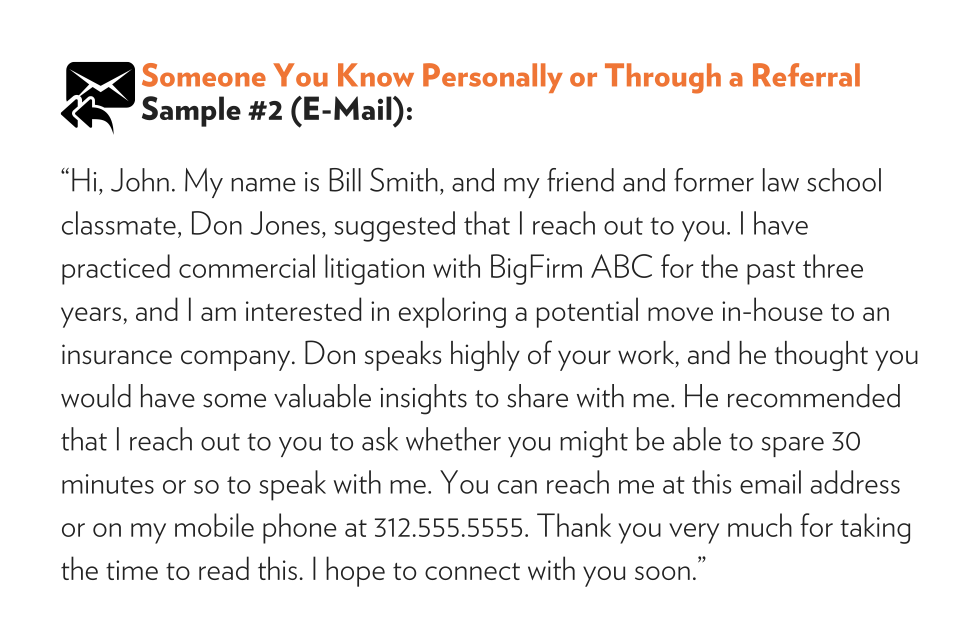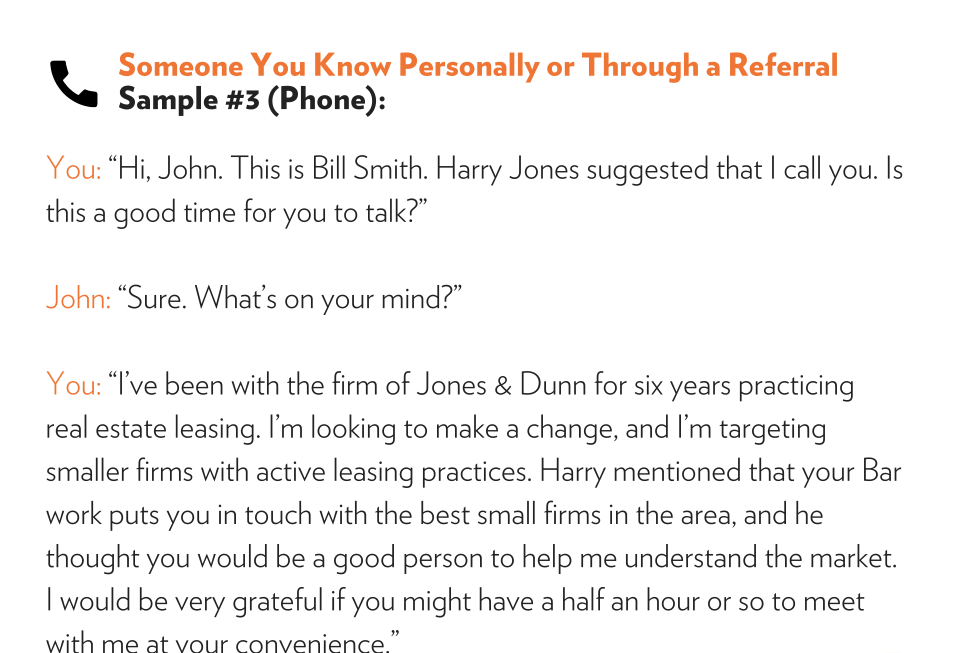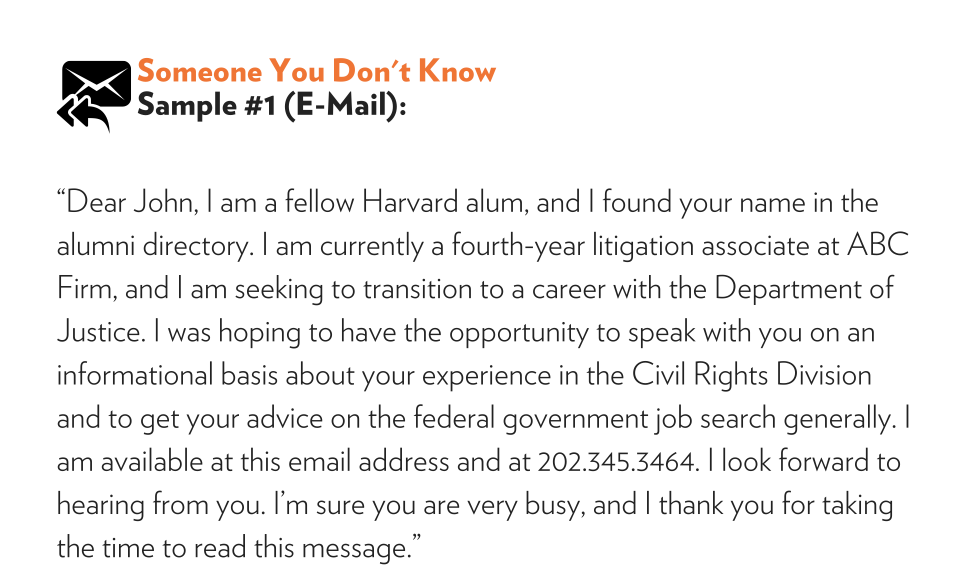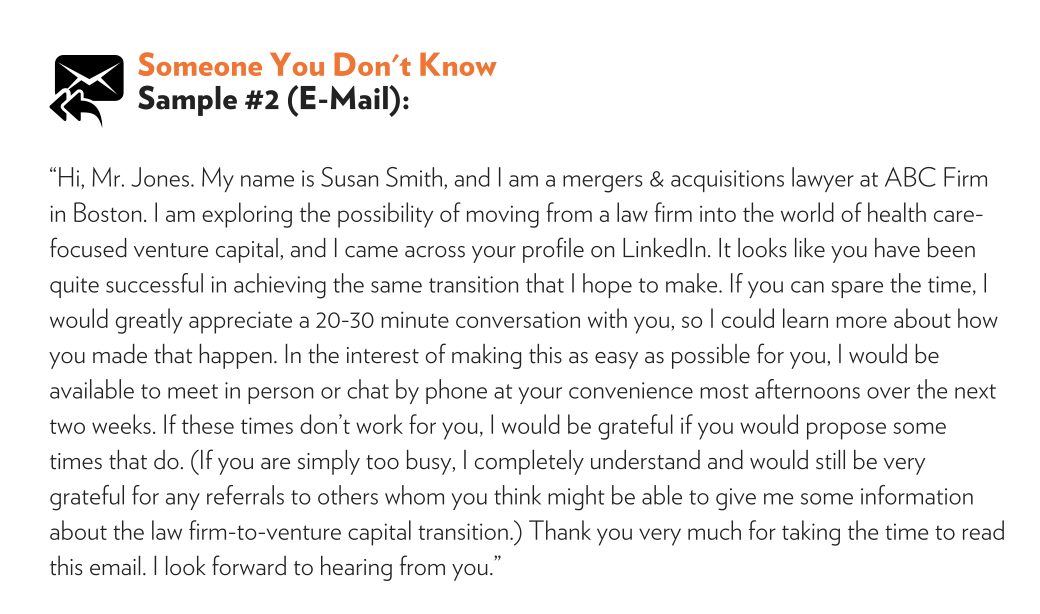Requesting an Informational Interview
BEFORE REACHING OUT...
... take a step back.
Wait to request the informational interview until you are clear about what information you hope to gain by speaking with this specific person (i.e., what unique information this person has that you could not easily obtain elsewhere).
Also, it is a good idea to have your LinkedIn profile be at least basically complete before you reach out to anyone for an informational interview. While it does not have to be perfect (a skeletal profile is fine at this point), the person will likely go on LinkedIn to get more information about you before you speak. Therefore, at a minimum, you want to ensure that your profile does not contain any information that contradicts your narrative.
ALWAYS REMEMBER
When you ask someone to grant you an informational interview, you are asking that person for a favor. Therefore, make sure you sound appreciative, follow that person’s lead and make the meeting as easy and convenient for him or her as possible.
MAKING THE REQUEST
General Guidelines
Open with a thank you. Start by thanking the person for taking the time to read your email (or accept your call). If the person is at a senior level or is in a field that is particularly interesting or sought-after (e.g., sports law, entertainment law), the chances are that they have been on the receiving end of many informational interview requests. You want to make sure they know that you appreciate their time.
Share your reasons. In other words, explain why you think this person can be helpful to you. This is not the same thing as explaining how you found them. Explain your goal for the informational interview, and what it is about their particular background and position that led you to think that a conversation with them would help you reach your goal.
Try to arrange a face-to-face. An in-person meeting is the best way to connect with (and impress) someone and to be remembered afterward. If geographic or other constraints make a face-to-face meeting impossible or impracticable, request a Skype meeting or phone call instead.
No collateral materials. Do not attach your resume, unless asked to, as this will imply that you are asking the person for a job.
Take the lead in scheduling. If the person is willing to have an informational interview with you, respectfully propose a few blocks of time that might work. Do not make them do the work of trying to come up with potential times. If your proposals don’t work, they will most likely offer some alternatives.
Follow-up, follow-up, follow-up. If you do not hear back within two weeks or so, follow up by email or phone, but always sound grateful. Stress that you realize how busy they are, and say that you wanted to follow up on your email from ___ (date).
Do your research. As with any interview, make sure that you properly research and prepare for the meeting. Your counselor can assist you with your preparation.
Case-Specific Guidelines
If you already know the person with whom you’ll be meeting, or if it is someone whose name has been given to you by a mutual contact, an email request for an informational interview is fine. (A phone call might work as well, but many people find email easier than having to listen to a voicemail and return a call.) You can use the samples below as a guide (use the arrows to click left or right for additional samples):
If you do not know the person and do not have an introduction, send a short email introducing yourself and explaining why you are writing. If you do not hear back from the contact in about a week, you can follow up with a phone call or email referencing your prior email. You can use the samples below as a guide (use the arrows to click left or right for additional samples):
